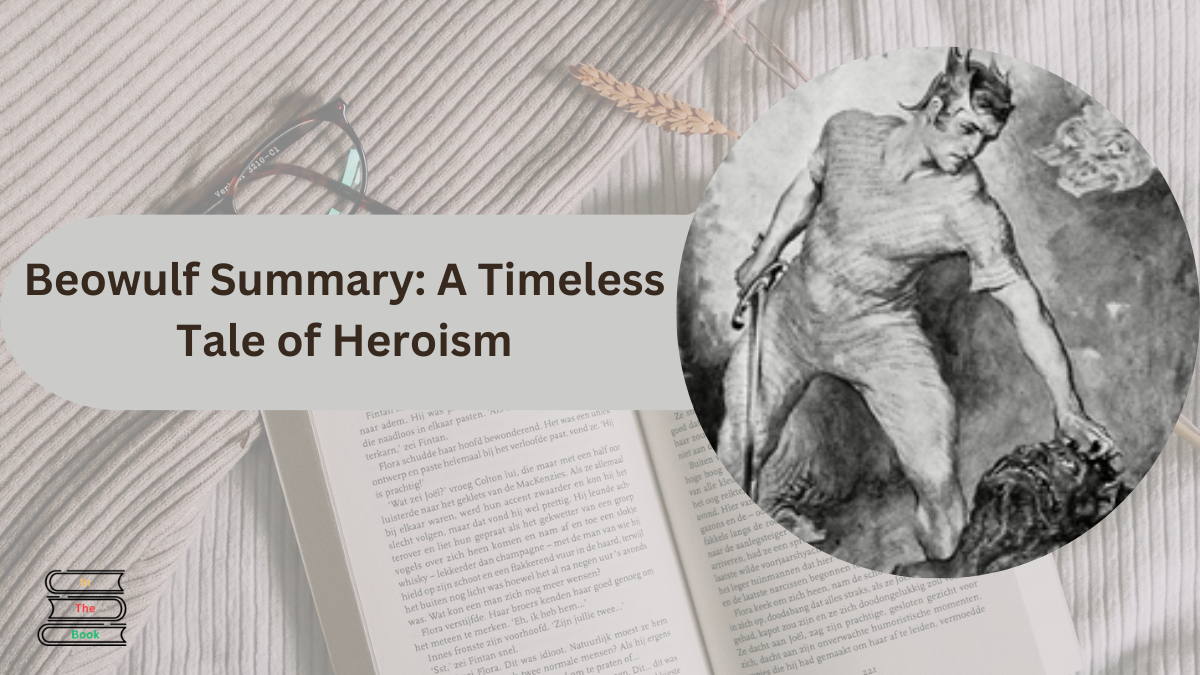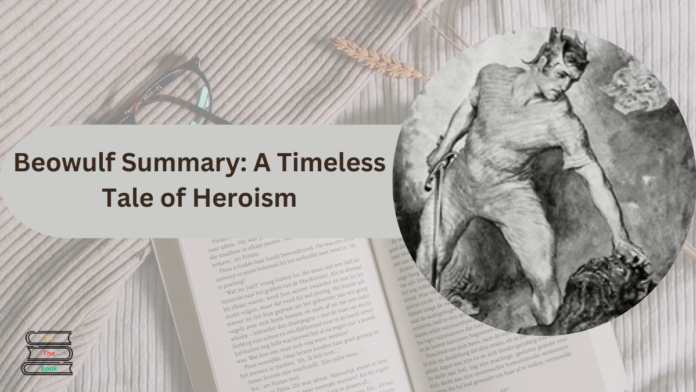The Beowulf Summary is a classic epic poem that has captivated readers for centuries with its timeless tale of heroism, courage, and the struggle between good and evil. The poem, anonymously in Old English, tells the story of Beowulf, a brave and mighty warrior who battles a monster named Grendel and later a dragon to save the kingdom of the Geats.

Contents
Beowulf Summary: A Hero’s Quest
The Beowulf summary begins with the introduction of King Hrothgar, who builds a grand mead hall called Heorot, where his warriors gather to celebrate and feast. However, their joy is short-lived, as a monster named Grendel begins to attack the hall, killing and devouring many of Hrothgar’s men. Enter Beowulf, a brave and boastful Geatland warrior who offers to battle Grendel and save the kingdom.
The Battle with Grendel
Beowulf and his companions travel to Heorot, where they prepare for battle. When Grendel comes to attack, Beowulf wrestles the monster bare-handed, ultimately ripping its arm off and killing it. However, Grendel’s mother seeks revenge and attacks the hall, leading Beowulf to battle her in a nearby lake.
Grendel’s Vengeful Mother
After defeating Grendel, Beowulf faces an even more significant challenge: Grendel’s mother, a formidable and vengeful creature. She attacks Heorot to avenge her son’s death, prompting Beowulf to act again. He ventures into her underwater lair, where a fierce battle ensues. Beowulf ultimately kills Grendel’s mother with a magical sword he finds in the lair, bringing peace to Heorot.
The Battle with the Dragon
After returning to Geatland, Beowulf becomes king and rules for many years. However, a dragon begins to terrorize his kingdom, and Beowulf, now an older man, decides to battle it. Although he knows it will be his last fight, Beowulf chooses to face the dragon alone, ultimately killing it but suffering fatal wounds.
Beowulf’s Final Battle
Beowulf confronts the dragon that threatens his kingdom in his final act of heroism. Despite his age and the knowledge that this battle will likely be his last, Beowulf shows unwavering bravery. With the help of a young warrior named Wiglaf, he slays the dragon. However, Beowulf is mortally wounded in the process. His death marks the end of an era of heroism and courage.
Themes and Symbolism
The Beowulf summary explores themes of heroism, loyalty, and the human condition. The poem is rich in symbolism, with the monsters representing the forces of darkness and chaos, while Beowulf represents the power of sound and courage. The battles against Grendel, Grendel’s mother, and the dragon symbolize the struggle between good and evil, order and chaos, and the inevitability of death.
Heroism and Loyalty
Beowulf’s actions throughout the poem exemplify the ideals of heroism and loyalty. His willingness to help Hrothgar, bravery in facing monstrous foes, and dedication to protecting his people as king all highlight these virtues. The loyalty between Beowulf and his followers, particularly Wiglaf, underscores the importance of trust and camaraderie.
The Human Condition
The Beowulf summary also delves into the human condition, examining themes such as mortality, legacy, and the passage of time. Beowulf’s journey from a young warrior to an ageing king reflects the inevitable progression of life and the challenges that come with it. His death serves as a reminder of the transient nature of life and the enduring impact of one’s actions.
Conclusion
In conclusion, Beowulf’s summary is a timeless tale of heroism and courage that continues to captivate readers with its rich language, vivid imagery, and universal themes. The poem’s exploration of the human condition, morality, and the struggle between good and evil makes it a work of enduring significance. Through Beowulf’s heroic deeds, the poem celebrates the virtues of bravery, loyalty, and self-sacrifice, offering valuable lessons for readers of all ages.
The enduring appeal of Beowulf lies in its ability to resonate with audiences across different cultures and eras. It reminds us of the timeless nature of its themes and the enduring power of heroic tales. As we revisit the Beowulf summary, we are reminded of the importance of courage, loyalty, and the inevitability of facing our challenges with unwavering resolve.
Click Here To Read More

Ross, an exam specialist with a passion for education, writes comprehensive articles on exam results and admit cards. His expertise ensures students receive reliable information and useful tips to excel in their exams.



























